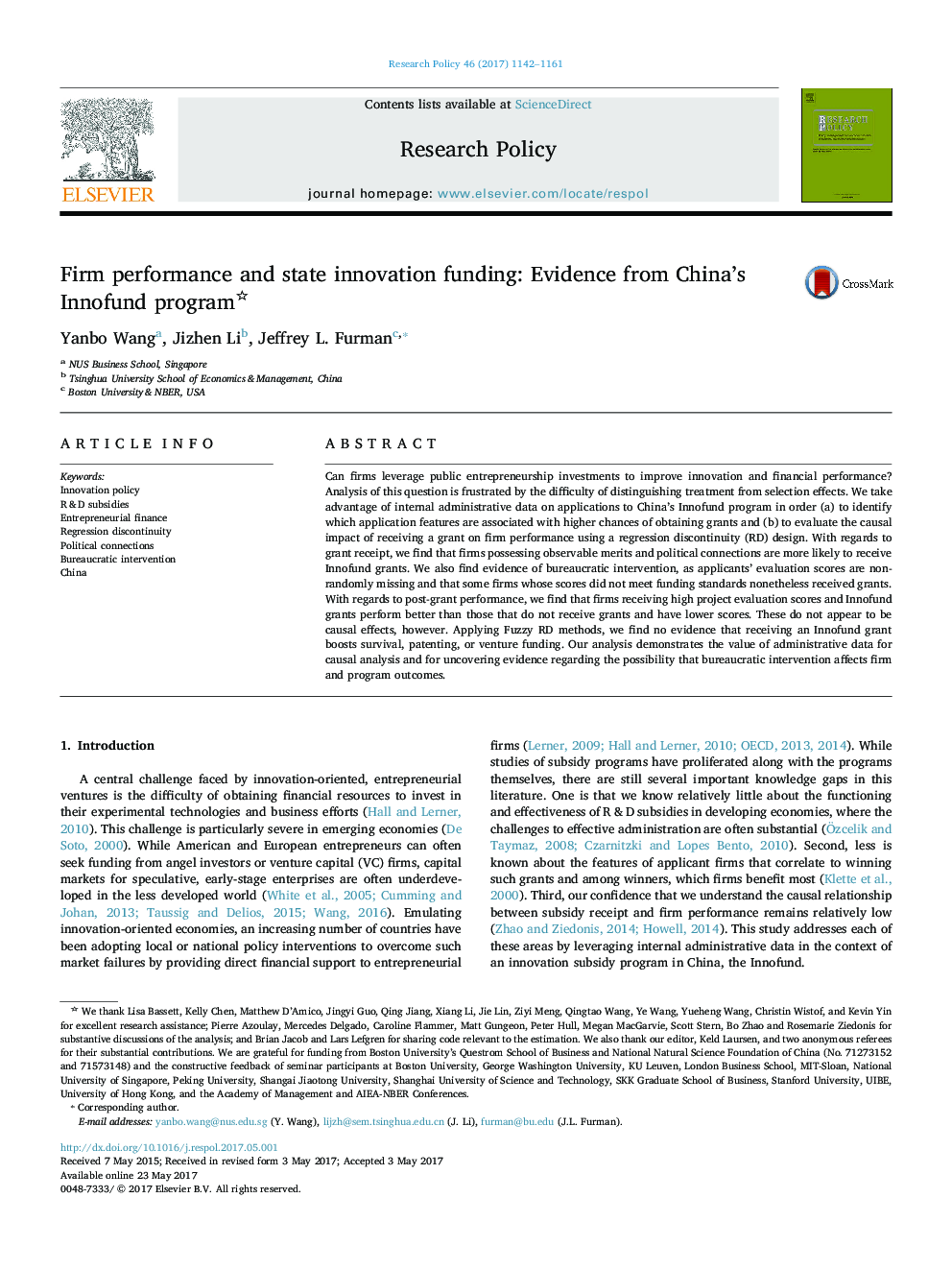| Article ID | Journal | Published Year | Pages | File Type |
|---|---|---|---|---|
| 5103951 | Research Policy | 2017 | 20 Pages |
Abstract
Can firms leverage public entrepreneurship investments to improve innovation and financial performance? Analysis of this question is frustrated by the difficulty of distinguishing treatment from selection effects. We take advantage of internal administrative data on applications to China's Innofund program in order (a) to identify which application features are associated with higher chances of obtaining grants and (b) to evaluate the causal impact of receiving a grant on firm performance using a regression discontinuity (RD) design. With regards to grant receipt, we find that firms possessing observable merits and political connections are more likely to receive Innofund grants. We also find evidence of bureaucratic intervention, as applicants' evaluation scores are non-randomly missing and that some firms whose scores did not meet funding standards nonetheless received grants. With regards to post-grant performance, we find that firms receiving high project evaluation scores and Innofund grants perform better than those that do not receive grants and have lower scores. These do not appear to be causal effects, however. Applying Fuzzy RD methods, we find no evidence that receiving an Innofund grant boosts survival, patenting, or venture funding. Our analysis demonstrates the value of administrative data for causal analysis and for uncovering evidence regarding the possibility that bureaucratic intervention affects firm and program outcomes.
Keywords
Related Topics
Social Sciences and Humanities
Business, Management and Accounting
Business and International Management
Authors
Yanbo Wang, Jizhen Li, Jeffrey L. Furman,
